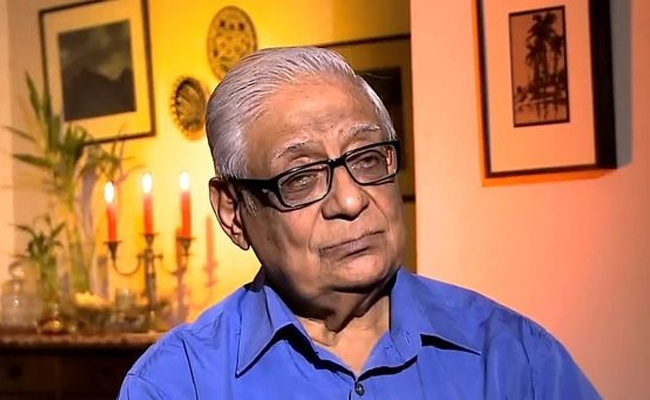Washington: Four Indian-American executives from two IT staffing companies have been arrested on charges of fraudulently using the H-1B visa programme to gain an unfair advantage over their competitors, the US Justice Department has said.
The H-1B visa is a non-immigrant visa that allows US companies to employ foreign workers in speciality occupations that require theoretical or technical expertise.
Vijay Mane, 39, Venkataramana Mannam, 47, and Fernando Silva, 53, from New Jersey while Sateesh Vemuri, 52, from California were each charged by complaint with one count of conspiracy to commit visa fraud, the Department of Justice said on Tuesday.
Vemuri made his initial appearance on July 1 before the US Magistrate Judge Steven C Mannion in Newark federal court while Mannam and Silva appeared before the US Magistrate Judge Leda Dunn Wettre in Newark federal court on June 25. Mane appeared before Judge Wettre on June 27.
All accused were released on USD 250,000 bond, the Department of Justice said. The conspiracy charge carries a maximum potential penalty of five years in prison and a USD 250,000 fine.
According to the Department of Justice, Mane, Mannam, and Vemuri controlled two IT staffing companies-- Procure Professionals Inc and Krypto IT Solutions Inc-- located in Middlesex County, New Jersey.
Similarly, Silva and Mannam also controlled another New Jersey staffing company, referred to in the complaint as 'Client A'.
They used Procure and Krypto to recruit foreign nationals and sponsor them for H-1B visas, which allow recipients to live and work temporarily in the US in positions requiring specialised skills.
To expedite their visa applications, the defendants caused Procure and Krypto to file H-1B applications falsely asserting that the foreign worker/beneficiaries had already secured positions at Client A, when, in reality, no such positions existed, federal prosecutors alleged.
Instead, they used these fraudulent applications to build a bench of job candidates already admitted to the United States, who could then be hired out immediately to client companies without the need to wait through the visa application process, giving the defendants an advantage over their competitors in the staffing industry.
The charges against the four comes amid a crackdown on the H-1B programme by the administration of President Donald Trump, which has taken aim at outsourcers and IT staffing companies, and dramatically increased the rate of rejection for H-1B visas.
Let the Truth be known. If you read VB and like VB, please be a VB Supporter and Help us deliver the Truth to one and all.
Mumbai (PTI): NCP (SP) MLA Rohit Pawar on Wednesday alleged that someone was trying to save VSR Ventures in connection with the plane crash that killed Maharashtra deputy chief minister Ajit Pawar, and claimed that the AAIB preliminary probe vindicated the doubts earlier raised by him.
He also accused VSR company of indulging in several grave lapses in the past.
The Learjet 45 aircraft, operated by VSR Ventures, crashed near the Baramati air strip in Pune district on January 28, killing Pawar and four others.
In its 22-page preliminary report on the VSR Venture's Learjet plane crash, the Aircraft Accident Investigation Bureau (AAIB) said the visibility at the time of the crash was below the required level. It also flagged about fading marks on the runway and presence of loose gravels on the runway surface.
Pawar said, "I am not against VSR or the Directorate General of Civil Aviation (DGCA). Ajitdada was travelling in a VSR aircraft. Unless we go into the depth of every aspect, we will not know the truth. But someone is trying to save this company. The doubts we had raised have been proven correct in the inquiry report."
He also claimed that the AAIB report contained discrepancies, including mentioning Baramati as a district, and questioned how seriously the probe had been conducted.
Pawar, who has been regularly holding press conferences to raise issues concerning the Baramati plane crash, also contested the report's conclusion that the aircraft hit trees before crashing.
"The report says the aircraft struck trees and then fell. But there are no trees at that spot. There is only a small bush which the aircraft did not even touch. What is stated in the report about hitting trees is incorrect," he said.
Pawar further alleged that VSR Ventures had displayed irresponsibility on multiple occasions, citing an incident involving the then chief minister Eknath Shinde's Davos visit on January 20, 2023.
He claimed that the aircraft carrying Shinde had entered Iranian and Iraqi airspace without overflight permission, following which fighter jets from the two countries allegedly warned of action, forcing a change in route from Bahrain to Zurich.
"There have been several such grave lapses by VSR," he said.
Pawar demanded to know from where VSR Ventures derived its "audacity", and sought details about its investors and officials, though he added that he was not personally concerned with who they were.
Drawing a comparison, he said the Central Bureau of Investigation (CBI) had taken over the probe into actor Sushant Singh Rajput's death within two days, whereas a month had passed since the Baramati crash without a similar action.
He claimed that VSR Ventures had two directors and three shareholders, and that there were eight common names across two related companies.
He further alleged that the owner of VSR was related to the Union Civil Aviation Minister and questioned why the company, though registered in Delhi, had made high-value investments in Jubilee Hills (upscale area in Hyderabad) at rates allegedly Rs 17 crore above the market price.
The MLA representing the Karjat-Jamkhed assembly constituency in Ahilyanagar district also raised concerns about the legal and institutional framework of the AAIB under the 2017 rules, claiming it was neither a statutory nor an autonomous body and remained answerable to the secretary and the minister, besides being attached to the DGCA.
"There is no independent investigative agency," he alleged.





